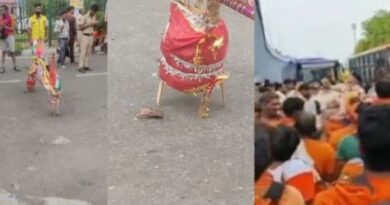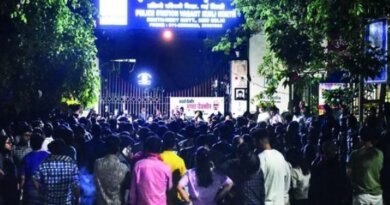Great Warrior :Lt Gen Hanut Singh Rathore remained unmarried for the Bharat
Great Warrior :Lt Gen Hanut Singh Rathore remained unmarried for the Bharat.Colonel Arjun Singh was born in the house of Rathore hideout, Jasol, Rajasthan.
While the soil of Rajasthan has given birth to heroes like Maharana Pratap and Veer Durgadas, Bhakta Shiromani is also the mother of Mirabai. Veer Hanoot Singh had both the qualities of Rajasthani soil. Under his leadership, the Poona Horse Regiment had destroyed 48 tanks of Pakistan in the Indo-Pak war of 1965 and 1971, after which the Pakistani army had no option but to accept defeat.
Take. General Hanoot Singh was born on 6 July 1933. Colonel Arjun Singh was born in the house of Rathore hideout, Jasol, Rajasthan. He was the cousin of the country’s former foreign and defense minister Jaswant Singh. He joined the NDA in 1949 after completing his studies from Karnan Brown School in Dehradun. From there he joined the army. Here he was appointed as second lieutenant. After that he continued to progress step by step.
Lt Gen Hanut Singh Rathore The strength shown in the Indo-Pak war
In the years 1965 and 1971, Hanoot Singh participated in the Indo-Pak war on behalf of the Poona Horse Regiment. Under the leadership of A.B. Tarpare and Second Lieutenant Arun Kshetrapal, while showing their fighting skills, destroyed 48 tanks of the Pakistan Army and released the sixes of the Pakistan Army.
Pak said Fakr-e-Hind-
Impressed by the skills of Hanoot Singh in the war, Pakistan’s unit awarded this regiment of India the title of Fakr-e-Hind, which was awarded to an opposing army for the first time in the history of the Indian Army. He was also awarded the Maha Vir Chakra for his bravery in the war.
Lifelong child-brahmachari
Hanoot Singh was known as Gurudev in the regiment. Everyone respected him saying this. He didn’t get married. Impressed by him, most of the officers of his unit did not even marry.
Soldier turned sage
He had an inclination towards spirituality and yoga since childhood. During the army, he was introduced to the Shaiv Bal Ashram in Dehradun. After retiring from the army, he started living there. He was known as Guruji. He was strictly against alcohol and meat.
Impressed by the child Shivyogi of Dehradun, he took initiation from him. After that he settled there. He used to come to Balasati Ashram in Jodhpur for two months in a year. There too he did not talk much to the family and was absorbed in his spiritual practice.
The battle of Basantar in 1971
Without a doubt, the Battle of Basantar was Gen. Hanut Singh’s finest hour. He led his famed regiment, Poona Horse, into one of the fiercest tank battles on the sub-continent. His key decision to risk the regiment across an uncleared minefield proved to be the battle-winning factor. When Pakistan’s 13 Lancers with Patton Tanks attacked the Indian position at Jarpal, they were surprised and destroyed by the Centurions of Poona Horse. Lt Arun Khetarpal posthumously won a Param Vir Chakra, and Comdt Hanut, a Maha Vir Chakra.
His citation read: “Undeterred by enemy medium artillery tank fire, Lt. Col Hanut Singh, moved from threatened sector to another, with utter disregard for his personal safety. His presence and cool courage inspired his men to remain steadfast and perform commendable acts of gallantry”.




